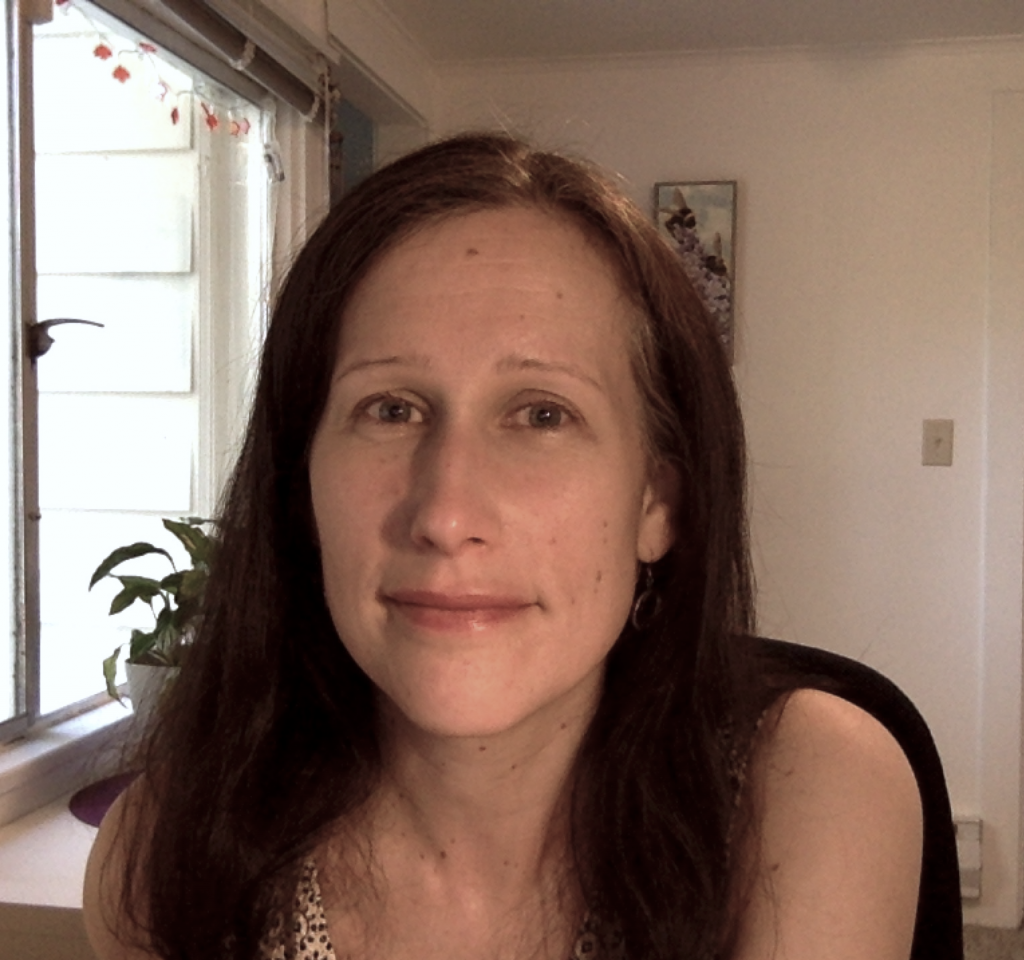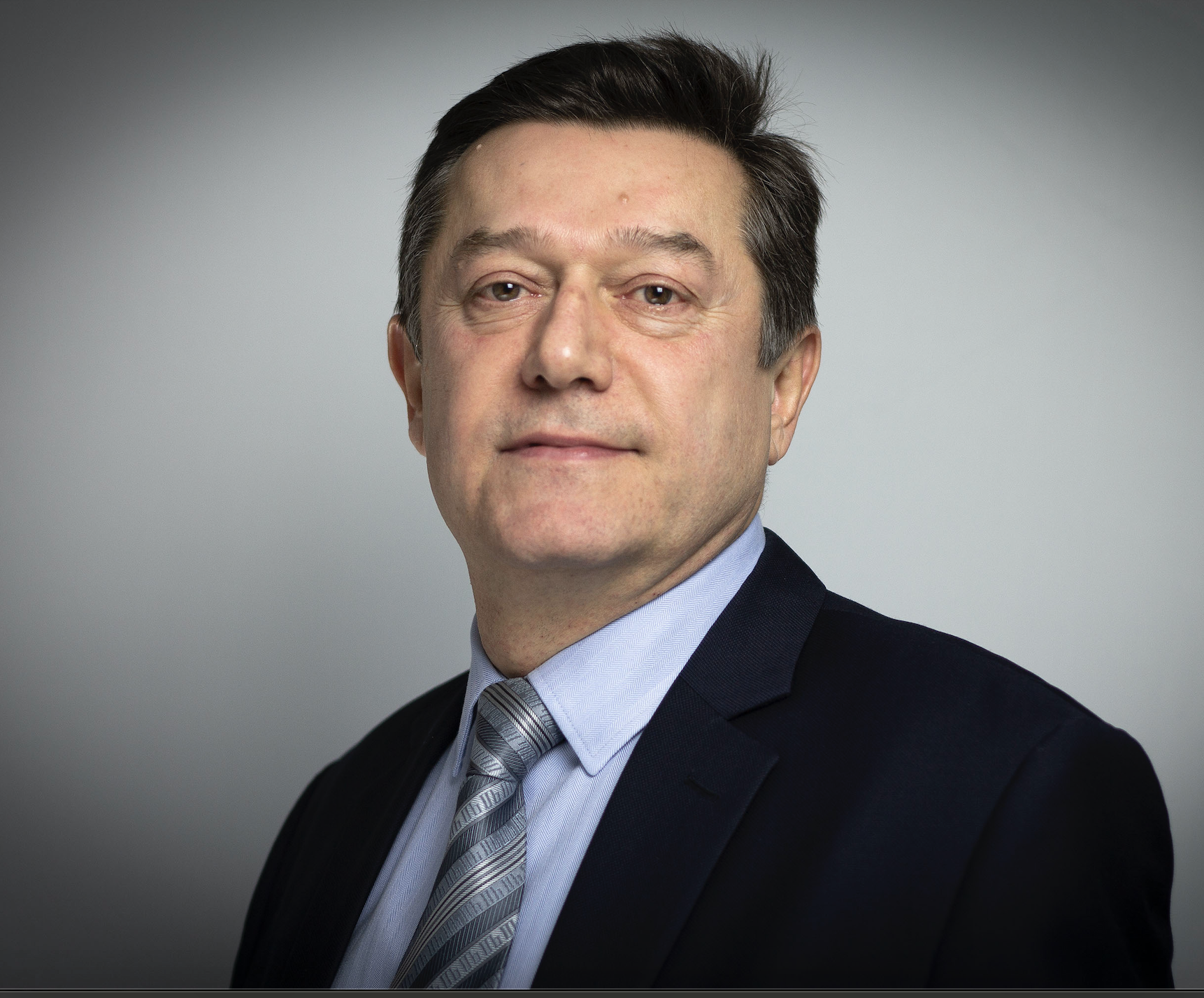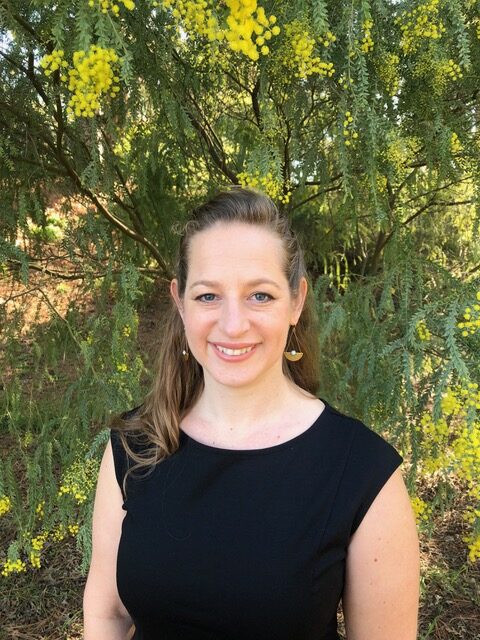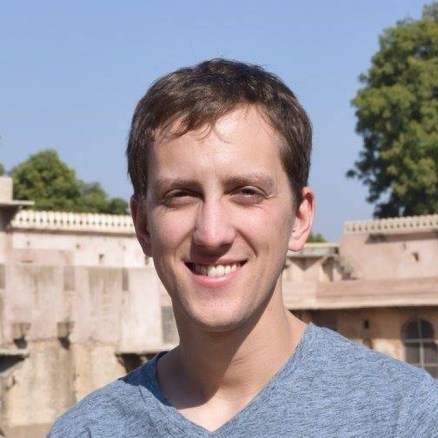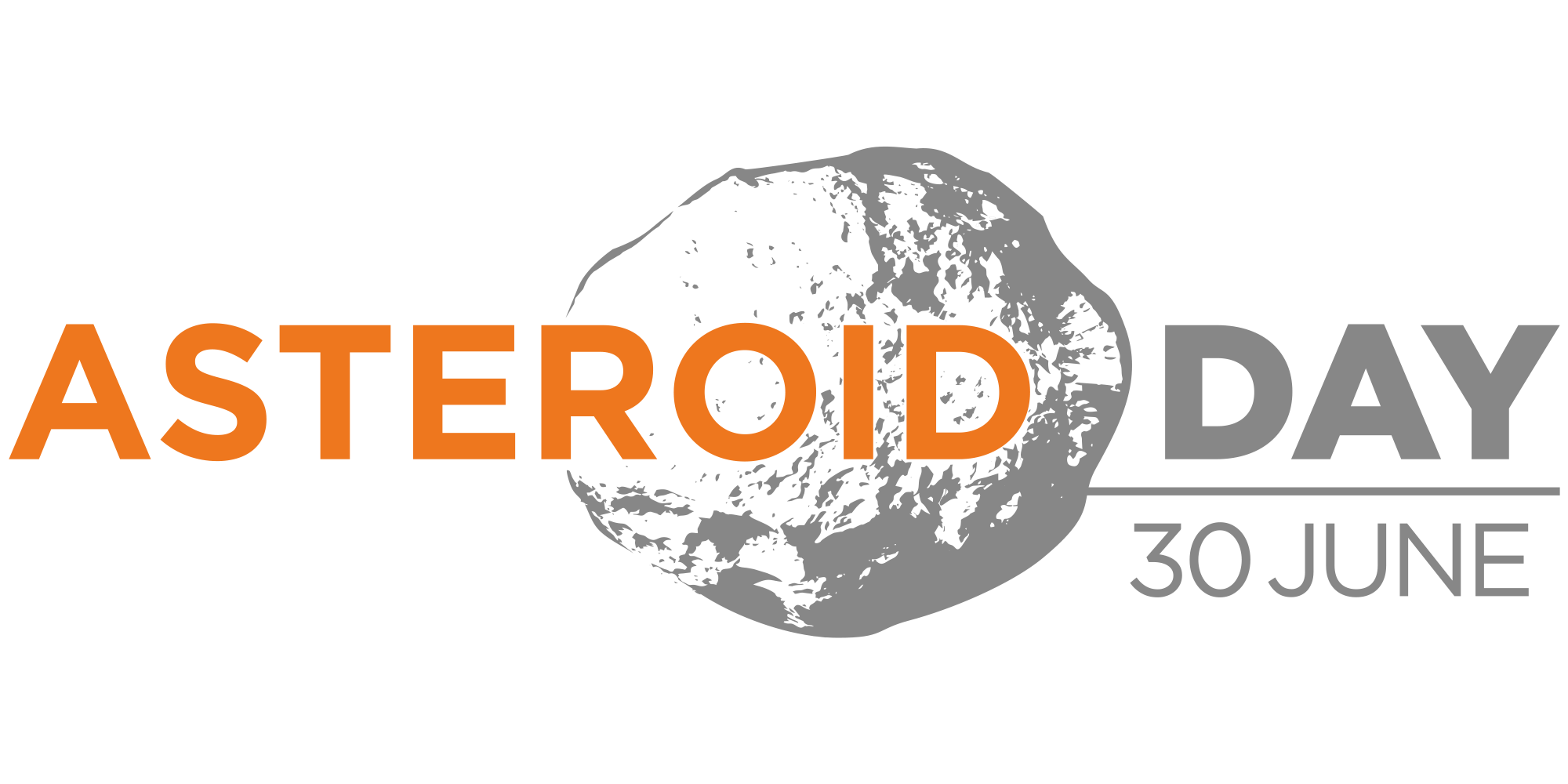In January 2022, published paper by Zeljko Ivezić, Vedrana Ivezić, Moeyens Joachim…
DiRAC members Joachim Moeyens and Zeljko Ivezić, aided by a DiRAC guest researcher Vedrana Ivezić, led a multi-institutional team of scientists who produced and analyzed simulated SPHEREx spectra of asteroids.
SPHEREx is a 2-year NASA space mission scheduled for launch in less than 3 years. SPHEREx will deliver the first all-sky spectral survey at about 100 spectral channels in the infrared wavelength range 0.8-5.0 micron. The team estimated that SPHEREx dataset will be transformative: high-quality spectra will be obtained for close to 10,000 asteroids, representing an increase over our current sample size by more than an order of magnitude.
With its additional LSST expertise, DiRAC will be well positioned to lead cutting-edge studies of asteroid taxonomy and photometric variability, and thus contribute to our understanding of the formation and evolution of our SolarSystem.
ADS: Simulated SPHEREx spectra of asteroids and their implications for asteroid size and reflectance estimation
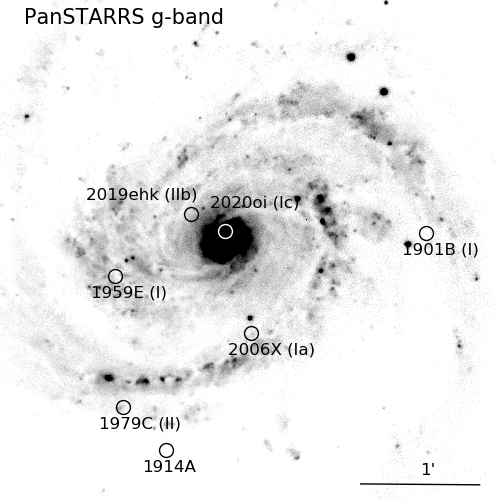
Published paper by Melissa Graham
Supernovae are the explosions of stars that can be seen across vast distances, appearing as new bright points of light in optical images of the sky, even when the original star was far too faint to be detected.
When different types of stars explode (e.g., low-mass and high-mass) they cause supernovae with a variety of characteristics (e.g., brightness, color, duration). When two or more supernovae (explosions of stars) occur in the same galaxy, we say they have the same “parent galaxy” and are “sibling supernovae”. The characteristics of sibling supernovae can thus be compared knowing that, since they have the same distance from Earth and come from similar environments, any differences between them are more likely to be related to the type of star that exploded. Sibling supernovae are thus very useful for obtaining a better understanding of both supernovae and their parent galaxies.
Since the average supernova rate for a Milky Way-type galaxy is just one per century, a large imaging survey is required to discover an appreciable sample of sibling supernovae. In this paper we present 10 sibling supernovae in 5 parent galaxies from the wide-field Zwicky Transient Facility (ZTF).
For each of these families we analyze the supernova’s location within the parent galaxy, finding agreement with expectations that supernovae from more massive stars are found nearer to their parent galaxy’s core, and in regions of more active star formation.
We also present an analysis of the relative rates of core collapse and thermonuclear sibling supernovae, finding a significantly lower ratio than past samples due to the unbiased nature of the ZTF.
ADS: Supernova Siblings and their Parent Galaxies in the Zwicky Transient Facility Bright Transient Survey
About
Melissa Graham currently works for Rubin Observatory as the Lead Community Scientist for the Community Engagement Team and as a Science Analyst for the Data Management team. Her main research focus is supernovae, especially those of Type Ia.
On January 3, 2022, Željko Ivezić assumed the role of Director of Rubin Observatory Construction, appointed by Matt Mountain, AURA President.
Professor Ivezić has been involved with Rubin Observatory/LSST since its inception in the early 2000s, serving for many years as Project Scientist and head of the Project Science Team.
Pedro Bernardinelli was born in São Paulo, Brazil and completed his undergraduate studies in Physics at the University of São Paulo. After that, he got his Ph.D from University of Pennsylvania, focusing on the development and application of new techniques for the discovery and characterization of the most distant bodies in our Solar System, trans-Neptunian objects, as a member of the Dark Energy Survey (DES).
As part of this research, Pedro has led the discovery of over 600 TNOs and the comet C/2014 UN271 (Bernardinelli-Bernstein), the largest Oort-cloud comet ever found. His research also has had deep applications to the Planet 9 hypothesis, as well as to current models of the trans-Neptunian region.
At the University of Washington, Pedro is excited to expand this research to current surveys, as well as upcoming projects such as the DECam Ecliptic Exploration Project (DEEP) and the Rubin Observatory’s Legacy Survey of Space and Time (LSST).
Pedro is also generally interested in astronomical data analysis and image reduction techniques, going from precise astrometry and photometry to detection of faint sources. Before the pandemic started, Pedro was one of the hosts and organizers of Astronomy on Tap Philly.
Outside academia, Pedro is interested in photography, fantasy/sci-fi literature, board and video games, cooking, baking, and is a great coffee enthusiast.
Read more on Pedro’s Website, and follow Twitter, Github, ADS Publications.
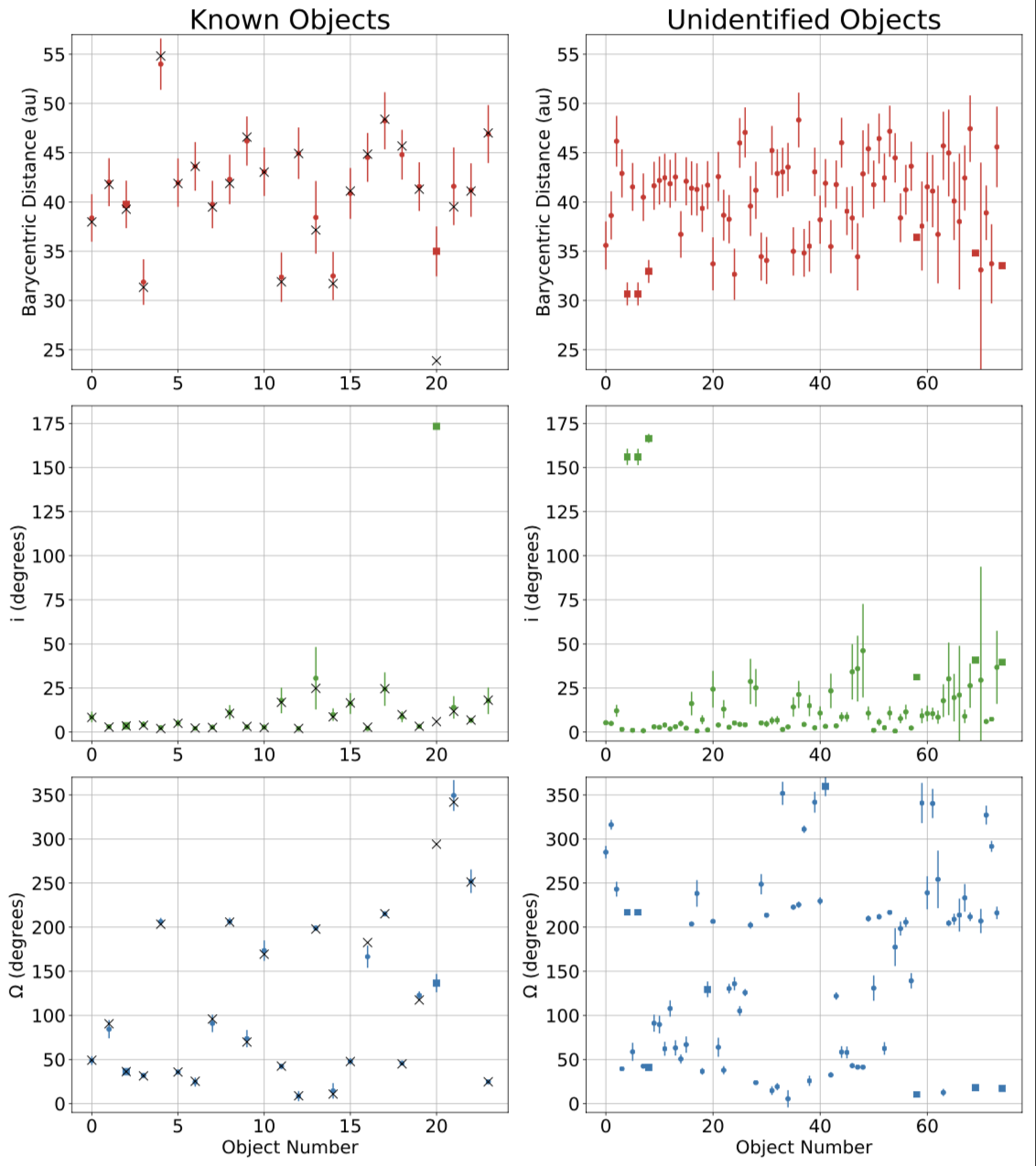
Trans-Neptunian objects provide a window into the history of the solar system, but they can be challenging to observe due to their distance from the Sun and relatively low brightness.
In the recently published paper, Sifting through the Static: Moving Object Detection in Difference Images, DiRAC researchers report the detection of 75 moving objects that could not be linked to any other known objects, the faintest of which has a VR magnitude of 25.02 ± 0.93 using the Kernel-Based Moving Object Detection (KBMOD) platform.
They recover an additional 24 sources with previously known orbits and place constraints on the barycentric distance, inclination, and longitude of ascending node of these objects. The unidentified objects have a median barycentric distance of 41.28 au, placing them in the outer solar system. The observed inclination and magnitude distribution of all detected objects is consistent with previously published KBO distributions. They describe extensions to KBMOD, including a robust percentile-based lightcurve filter, an in-line graphics-processing unit filter, new coadded stamp generation, and a convolutional neural network stamp filter, which allow KBMOD to take advantage of difference images.
These enhancements mark a significant improvement in the readiness of KBMOD for deployment on future big data surveys such as LSST.
ADS Published Paper, access here.
Bostroem Azalee (pronounced “OZ-a-lee”) is really excited to be in Seattle and joining DiRAC. She comes from a non-traditional career path, majoring in Mathematics at Vassar college where she also was certified to teach middle and high school math. A detour from those plans took her to San Diego State University for a master’s degree in astronomy – where she fell in love with the field.
Azalee developed a strong background in programming and data analysis as a research and instrument analyst at the Space Telescope Science Institute – where she supported the Cosmic Origins Spectrograph and the Space Telescope Imaging Spectrograph, two instruments on the Hubble Space Telescope. With the goal of returning to the west coast, she left the Space Telescope Science Institute to pursue a PhD in Physics at University of California, Davis where she studied hydrogen-rich supernovae with Prof. Stefano Valenti.
Hydrogen-rich supernovae are produced when the iron cores of stars between eight and thirty times the mass of the sun collapse and produce a neutron star. Infalling material bounces off the neutron star creating a shockwave which unbinds the star in a really bright explosion we call a supernova. While entire fields of study are devoted to studying massive stars and supernovae, we are still trying to figure out how to connect our observations of supernovae to their massive star progenitors. Two aspects of this connection that Azalee is particularly interested in are using supernovae to understand how massive stars lose mass just prior to explosion and what mass stars explode as hydrogen-rich supernovae. I use supernova observations to understand progenitor mass and mass loss by modeling the light curves of supernovae, observing them at X-ray and radio wavelengths, and by modeling the spectra one to two years after explosion.
While these technique worked great for the tens of supernovae we were discovering per year a few decades ago, they have not scaled well to the thousands of supernovae we are discovering with current surveys and will be unusable on most of the hundreds of thousands supernovae discovered by the Rubin Observatory’s Legacy Survey of Space and Time (LSST). Azalee’s current focus is on building tools to model the hydrogen-rich supernova light curves produced by the LSST to measure the progenitor properties of hundreds of thousands of massive stars in the final stages of their lifetimes.
In addition to supernova research, Azalee is actively involved with the Carpentries organization which teaches best practices for programming and data analysis to scientists in an open and inclusive way. She has been a certified instructor since 2012 and has been organizing workshops at the winter meeting of the American Astronomical Society since 2014. She is currently leading the development of a new Data Carpentry curriculum for astronomy called Foundations of Astronomical Data Science which teaches fundamental astronomy and data science skills such as working with databases and tables and communicating results through a compelling visualization.
On the weekends you can find her exploring Seattle by bike, hiking in the mountains, or paddling around Lake Union on her paddle board. She spends her less active days baking and cuddling with her two cats.
Read more on Azalee’s Website and follow on Twitter, Github, ADS Publications.
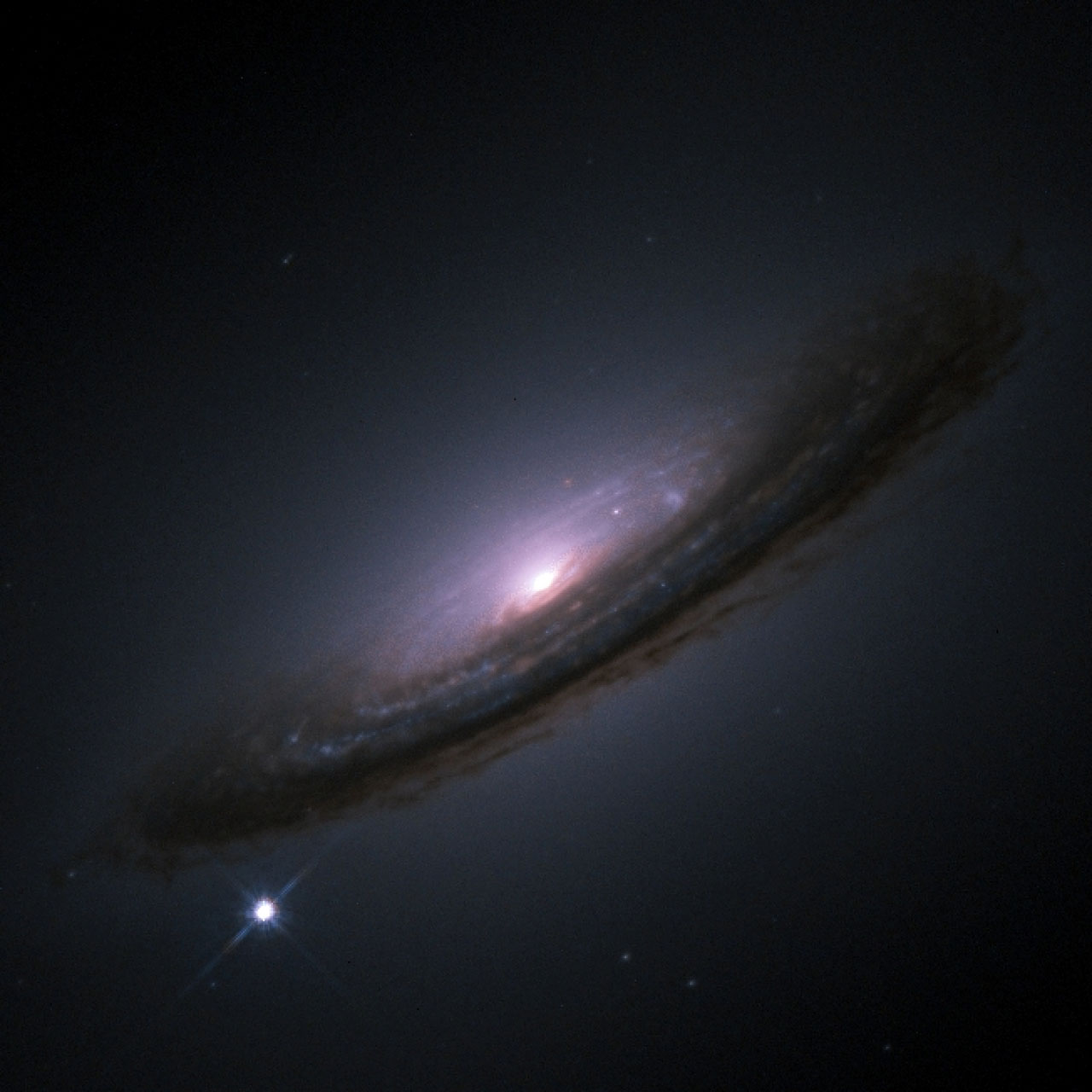
DiRAC researchers are heavily involved in building the Vera C. Rubin Observatory, a new facility that is currently under construction in Chile. This observatory will feature the 8.4 meter Simonyi Survey Telescope and the world’s largest CCD camera which will scan the entire visible sky every three nights. It will discover and observe millions of supernovae which are powerful explosions of stars that can outshine an entire galaxy for a brief period of time.
A particular type of supernovae called “Type Ia” can be used to map out how the universe has expanded since the big bang. This led to the discovery of dark energy which was awarded the Nobel Prize in 2011. The Rubin Observatory will discover over 100 times as many Type Ia supernovae then have been observed by all surveys to date and will dramatically improve our understanding of the universe.
Extracting scientific results from this large deluge of data is a big challenge. In his paper, DiRAC Fellow Kyle Boone discusses a new statistical model called ParSNIP that can be used to distinguish Type Ia supernovae from others and improve our maps of the universe. This novel work combines recent advances in computer science and deep learning with physics models of how light propagates through the universe. The resulting hybrid model is the first one that can empirically describe how the emitted light spectrum from any kind of supernova evolves over time.
This foundational work has many applications. ParSNIP will be used to identify the different kinds of supernovae that the Rubin Observatory finds, and it can do this with over twice the performance of previous models. It will also be used to hunt for new unknown kinds of supernovae in the large Rubin dataset. ParSNIP will use all of the millions of supernovae that the Rubin Observatory discovers to measure the properties of dark energy in contrast to current methods that can only use less than a tenth of the full sample. This work will transform supernova science with the Rubin Observatory and help to extract the full scientific potential.
About
Kyle Boone is DiRAC Postdoctoral Fellow. Kyle’s research focuses on developing novel statistical methods for astronomy and cosmology. He is particularly interested in using Type Ia supernovae to probe the accelerated expansion of the universe that we believe is due to some form of “dark energy”. One aspect of his research focuses on identifying Type Ia supernovae among the millions of astronomical transients that upcoming astronomical surveys such as the Large Synoptic Survey Telescope (LSST) will discover.
Read more here. GitHub here.
DiRAC Fellow Rebecca Phillipson has been awarded a Mathematical and Physical Sciences Ascending Postdoctoral Research Fellowship (MPS-Ascend) to conduct a program of research and education at the University of Washington. This new prize fellowship is intended to recognize beginning investigators of significant potential, and provide them with experience in research that will broaden participation in mathematics and the physical sciences.
Dr. Phillipson plans to employ statistical methods from nonlinear dynamics paired with deep learning techniques to characterize and classify the millions of X-ray Binaries (XRBs) and Active Galactic Nuclei (AGN) observed by the Zwicky Transient Facility. The resulting classification will enable discovery of previously unknown XRBs and AGN, potentially illuminate undersampled or undiscovered modes of variability from these sources, and prepare a path of discovery for future time domain missions. The research program will also operate as a vehicle for undergraduate students from underrepresented groups to engage in both data science and astrophysics research. She will partner with the UW eScience Institute to develop an accessible website for the dissemination of the scientific results from her research program. A key feature of her data access plan is enabling visually impaired scientists to interact with the data by using sounds to facilitate feature detection and analysis. This approach, called sonification, uses existing software tools to map scientific data to acoustic sequences.
“Dr. Phillipson’s research exemplifies our aims for the DiRAC Institute: she develops innovative timeseries analysis methods and applies them to large datasets to enable new discovery,” says Prof. James Davenport, Associate Director of DiRAC. “We’re thrilled that her excellent research and contributions to inclusion have been recognized with this fellowship, and look forward to continuing to collaborate.”
The LSST Corporation, a non-profit consortium of approximately 30 research institutions (including UW), has received $7 million to establish the LSSTC Catalyst Fellowship Funded by the John Templeton Foundation. These will support early-career researchers as they study big data generated from the soon-to-be-completed Vera Rubin Observatory in Chile.
Learn more about the first planetary defence mission on this year’s Asteroid Day LIVE
The full LIVE program schedule here will broadcast on June 30th, 2021 and it will repeat until July 4th, 2021. Watch the program live here at asteroidday.org
Asteroid Day is a global day of awareness and public education about asteroids. At science centers, schools, museums, universities, and community centers around the world events are being held to learn about the origin and composition of asteroids and how to deflect, detect and map their trajectories in our solar system to protect us from potential impacts and many more subjects relating to asteroids. There are thousands of events from around the world. A vision of self organized events around the world has come true with over 125 countries hosting events this year, on June 30th, 2021.

